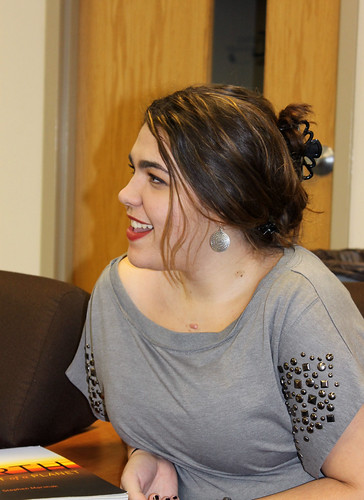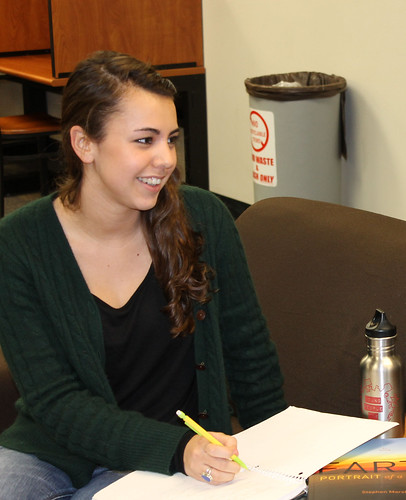

The questions that they ask seem simple enough: What do you think about the environment in which you live? What solutions would you propose to improve it?
However when Safya O’Rourke and Melena Murphy encourage the children of North Philadelphia to respond, the impact is far from average.
As co-presidents of Philly Eco Kids, a student-run organization born from Students for Environmental Action and Project EDU, O’Rourke and Murphy devote their time to visiting classrooms in North Philadelphia to teach students about the environment within the city.
“It is great to learn about the rainforest, coral reefs and the ocean, but many of them have never even been to those places,” Murphy said. “They get no environmental education that is directly linked to Philadelphia. The environment isn’t just the rainforest, it’s the area around them.”
O’Rourke and Murphy visit classrooms at John Welsh Elementary and St. Malachy School on average twice a month with lessons about environmental issues that directly affect the students, often introducing topics that the children have no prior experience.
“Whenever I teach a lesson about air pollution, I always ask the students how many of them have asthma,” said O’Rourke, a junior environmental studies and political science major. “Almost all of them raise their hands, and then I ask them if they realize that their condition might be linked to pollution, and hardly any of them have been introduced to that connection.”
According to Philly Eco Kids, this is exactly why it is important to spend such a great deal of time and energy developing lesson plans and convincing teachers to let them come and speak.
Approximately 22 percent of Philadelphia children under 18 have been diagnosed with asthma, a number that is twice as high as the national average. Philly Eco Kids provides the students with an understanding of the issues and instills within them a belief in their ability to institute change.
“I really feel like we make an impact by instilling ownership and pride where they live,” O’Rourke said. “We give them a desire to remediate problems and to protect the environment for future generations.”
According to the Environmental Protection Agency, the average American produces approximately 4.5 pounds of trash per day, 66.8 percent of which is sent to a landfill. O’Rourke and Murphy expose the children to this information and allow them to realize that unchecked waste growth is unsustainable.
By presenting the information in a personal and often tangible manner, Philly Eco Kids is also able to illustrate each student’s individual impact on the environment, in hopes of creating a stronger impetus for behavioral change.
“We always ask them how long do [they] think it will take for one Styrofoam cup that [they] used to decompose and their answers are always short,” said Murphy, a junior geography and urban studies and political science major. “They always answer, three days or one week or something like that. Then when we tell them that it takes 500 years they are always shocked.”
The key to Philly Eco Kids making an impact is the personal and interactive nature of the lessons.
“I grew up in an urban area myself,” O’Rourke said. “We did not have outside visitors come into our classrooms and I know that we would have appreciated it.”
“The kids in Philadelphia know that we care,” O’Rourke added. “It is exciting for them and so they listen to us.”
The children that O’Rourke and Murphy teach don’t have the resources that those living in Philadelphia’s suburban areas receive, and therefore, O’Rourke and Murphy said it is important to show that they are invested in the students they visit.
Philly Eco Kids provides an investment in an area of education that is often ignored. With the school district’s testing program focused around math and reading, science often gets neglected, especially as it relates to the environment.
“We are trying to create a whole new mentality for them that they can make a difference,” Murphy said.
The two invest their time in hopes that one day the children of North Philadelphia will not only be able to answer questions about their own environment, but will be able to create new solutions.
Amy Stansbury can be reached at amy.stansbury@temple.edu.



Hi Melena & Safya
The movers & Shakers, of Philly Eco Kids
great artical